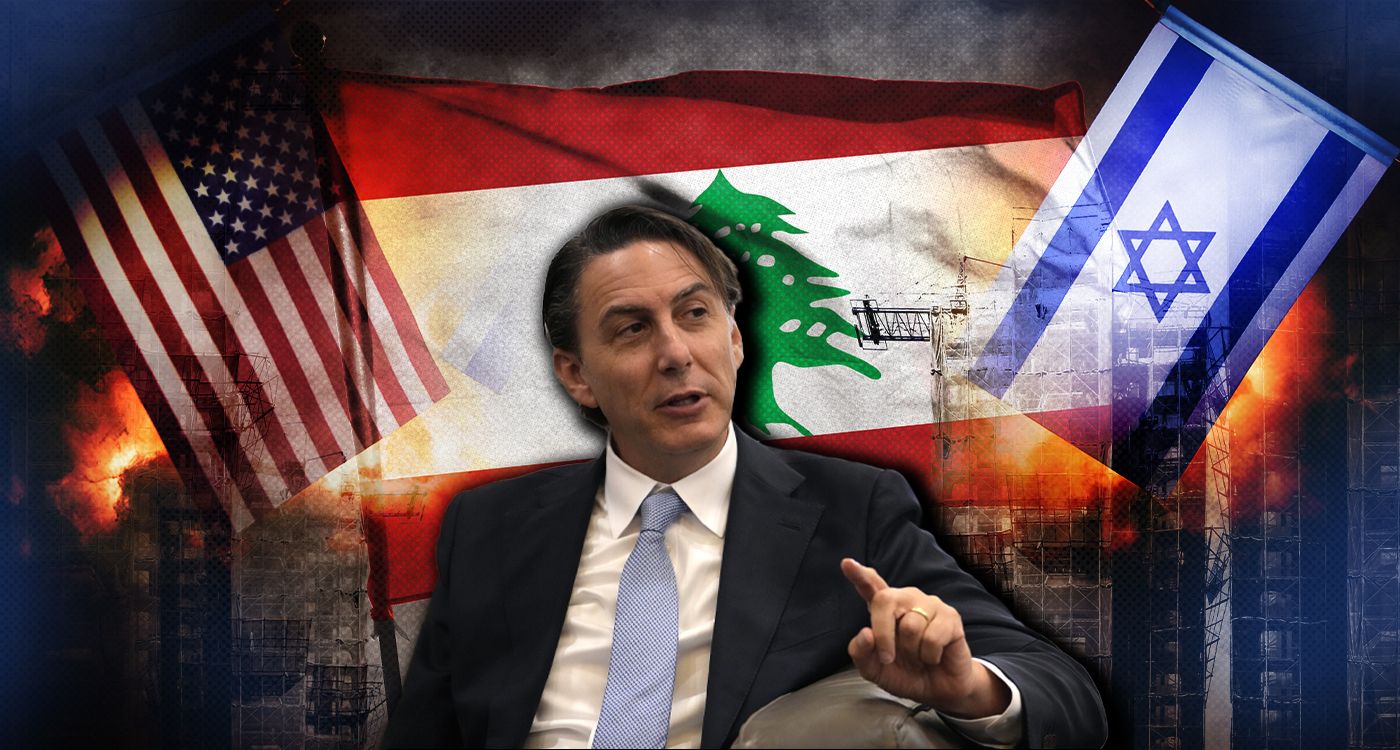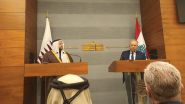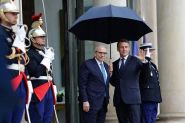
In the absence of an “Iran-Israel-US deal,” any roadmap for a ceasefire in Lebanon seems destined to fail. What about a proposal that, in both substance and form, brings no changes (being similar to the previous one) and for which each party continues to express reservations?
According to various media sources, US envoy Amos Hochstein is expected in Beirut shortly, probably on Tuesday, even though there was no official confirmation of this visit. Quoting an American official, the Axios website announced that Hocshtein will be leaving Washington “shortly.” The same website indicated earlier during the day that the date of the visit would only be set once Lebanon had “clarified” its position on the ceasefire agreement. Axios also reported that Hochstein informed the Speaker of the Lebanese Parliament, Nabih Berri, of his decision.
In any case, while the US envoy has not yet given up on reaching an agreement for a ceasefire, his potential visit to Lebanon and Israel is likely to end, as usual, in a diplomatic failure, at a time when tensions between Hezbollah and Israel have reached new heights in recent weeks.
After multiple exchanges of airstrikes, rocket fire and ground clashes, the situation in Lebanon and Israel is becoming increasingly precarious. This warlike climate has exacerbated the suffering of civilians on both sides of the border and threatens to escalate into a broader regional conflict. It is in this context that Amos Hochstein is expected in Beirut and Tel Aviv to propose a new roadmap aimed at establishing a lasting ceasefire. What does it entail, and to what do the stakeholders object?
The Main Challenges
Drafted in 13 points, this plan’s primary goal is to achieve an immediate cessation of hostilities between Israel and Hezbollah. This includes halting all rocket fire, airstrikes and ground attacks. To ensure the effectiveness of the agreement, an international monitoring mechanism would be implemented, with international observers overseeing compliance on both sides of the border. The ceasefire would be based on reciprocity: Israel would suspend its strikes in exchange for Hezbollah’s disarmament and withdrawal beyond the Litani River.
However, although the plan aims to de-escalate tensions and prevent further violence, its components remain highly contested by the belligerents.
For Israel, one of the main issues following the war is its desire to control “sensitive” areas in Lebanon and to prevent Hezbollah from rearming or conducting attacks. This demand, currently at the heart of the negotiations, is contested by the Lebanese side, which denounces it as an infringement on the country’s sovereignty.
What is it about? The “freedom of movement” that Israel demands is based on several fundamental principles related to the surveillance, management and control of the border areas with Lebanon.
Concretely, this means that the State of Israel seeks the ability to conduct surveillance and interception operations in areas close to the border without restrictions imposed by Lebanon or third parties. The main components of this demand are therefore:
- Access to border regions to prevent infiltrations and arms smuggling: Israel demands the right to monitor and intervene in the border areas near the Blue Line to prevent the illegal entry of arms and ammunition intended for Hezbollah. Israel considers that to ensure its security, it must be able to intercept any attempts to resupply Hezbollah militarily, which includes border surveillance and the possibility of preemptive actions in case of threats.
- Military action rights in case of violations: For Israel, freedom of movement also involves the right to conduct targeted military actions in case of treaty violations or suspicious activities. This includes preemptive airstrikes, demining operations or interventions to destroy Hezbollah's weapons storage facilities near the border. In response to attacks or movements by Hezbollah, Israel demands the right to act without waiting for the approval of the international community or the Lebanese army, which Tel Aviv deems incapable of curbing such activities.
In addition to Hezbollah’s refusal of any idea of disarmament (the group considers its weapons as a mean of defending Lebanon against Israel), the Lebanese position asserts that the issue of Hezbollah's disarmament must be resolved internally and not imposed by external actors.
Another question arises regarding the role of the Naqoura Monitoring Committee, created after Israel's “Grapes of Wrath” operation against Lebanon in 1996, to ensure that Hezbollah and Israel respect their commitments regarding ceasefire and cessation of aggression. “Is there an ability to expand this committee’s prerogatives without resorting to new resolutions?” asks a diplomatic source.
The current roadmap includes a request to add new members (officers of several nationalities, mainly American and French) to this supervisory committee (composed of an officer from the Lebanese army, one from the Israeli forces and one from the United Nations Interim Force in Lebanon), which has sparked heated controversy. The issues that arise from this, according to the same source, are the following: “Which new countries would be called to be represented in this committee? Would they be acceptable to the belligerents? To what extent is this expansion possible? Would we need to resort to the Security Council to do so, or can we limit ourselves to the procedures of Resolution 1701, which the Lebanese side considers a satisfactory objective?”
The main argument in favor of adding new members to the committee is based on several points, particularly the strengthening of observation activities and transparency so that the addition of new members would guarantee more comprehensive and impartial monitoring of activities on the ground, especially Hezbollah's military movements and Israeli military actions in the region.
Furthermore, an expanded committee could provide more human and logistical resources to monitor sensitive areas, detect violations and facilitate rapid responses in crisis situations. However, this proposal has been widely contested, particularly by the Lebanese side, which considers that increasing the number of international actors involved in border surveillance could be perceived as a violation of its sovereignty. Another concern is that new members might show bias in favor of Israel or other external powers, further destabilizing the country’s internal situation.
Will the American Proposal Bear Fruit?
Commenting on this issue, caretaker Prime Minister Najib Mikati stated many times that Lebanon is “determined to implement Resolution 1701,” hoping to achieve a ceasefire as soon as possible and put an end to the destruction and loss of life in the country. He also denied being informed of any conditions related to Israeli freedom of movement in Lebanon. Moreover, according to Israeli Channel 12, Israeli Prime Minister Benjamin Netanyahu reportedly ruled out the possibility of the agreement with Lebanon being applicable on the ground, demanding Israel's freedom of action on Lebanese territory and prohibiting the transfer of weapons from Syria.
“The current plan is very similar to the one proposed in November 2023; it is mainly based on UN Security Council Resolution 1701,” said a diplomatic source. However, the problem lies in the mechanisms for implementing Resolution 1701, and given the stances of the two stakeholders, particularly that of Israeli Prime Minister Benjamin Netanyahu, a last-minute reversal cannot be ruled out,” added the same source.
“Even though the situation has evolved significantly since last November, we cannot afford to be overly optimistic,” they continued. The same sentiment was echoed by an expert close to the matter: “It is difficult to foresee a solution to the current Middle Eastern crisis until the United States, Iran, and Israel reach an ‘arrangement’ that serves their regional interests.” According to him, “We cannot expect a resolution to the conflict before January 2025 (when US President Donald Trump is inaugurated, ed.),” and “we should prepare for rising tensions in the coming weeks.”
Today, the approach presented in the roadmap faces a series of political, military and diplomatic obstacles, making the implementation of these requirements particularly complex. At the same time, Lebanon, caught between Israel’s hammer and Hezbollah’s anvil, seeks to preserve its sovereignty and internal stability. The solution to this dilemma will depend on the international community’s ability to reconcile Israel’s security demands with the imperatives of sovereignty and peace in Lebanon.




Comments